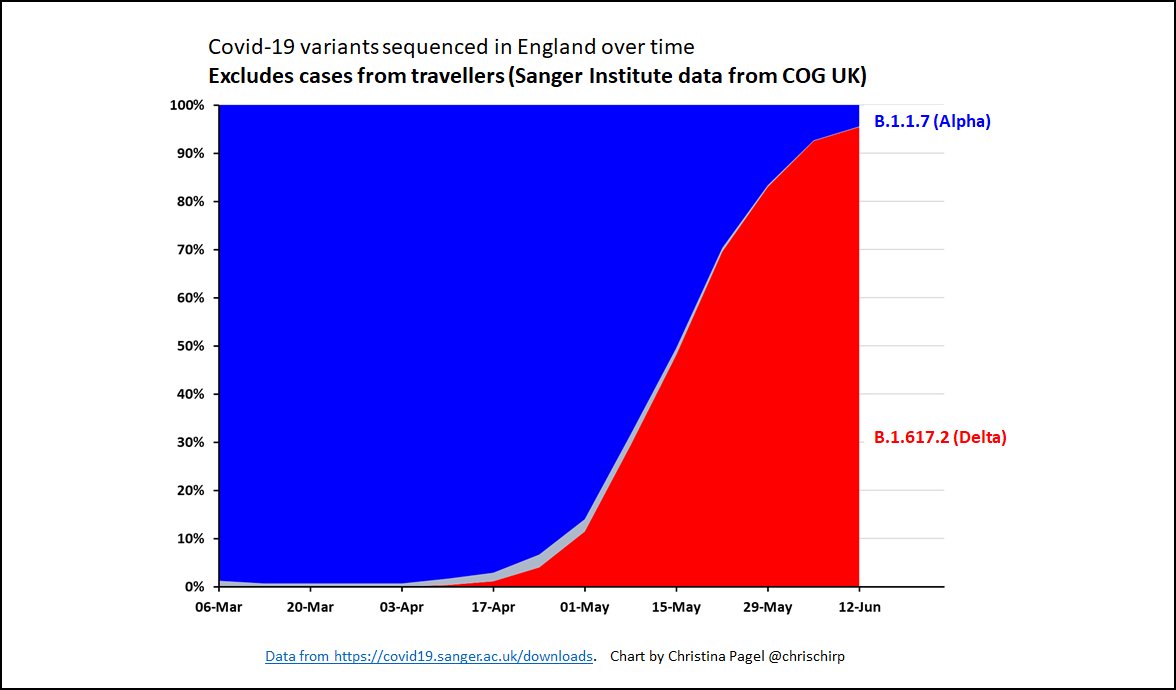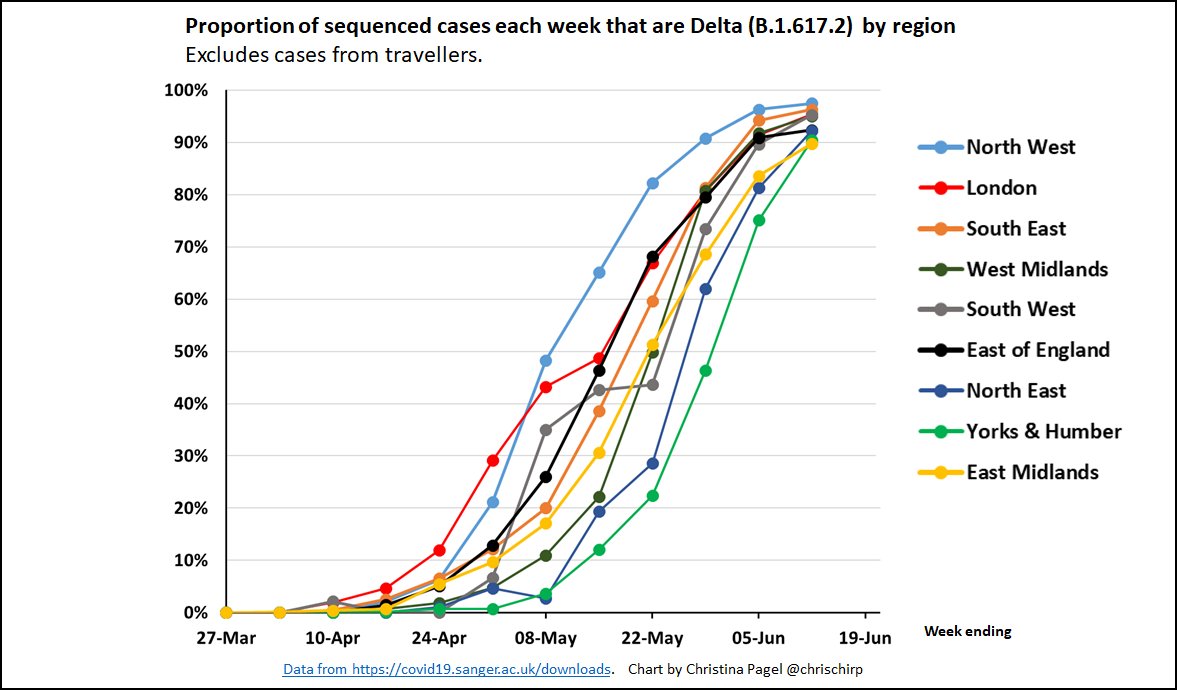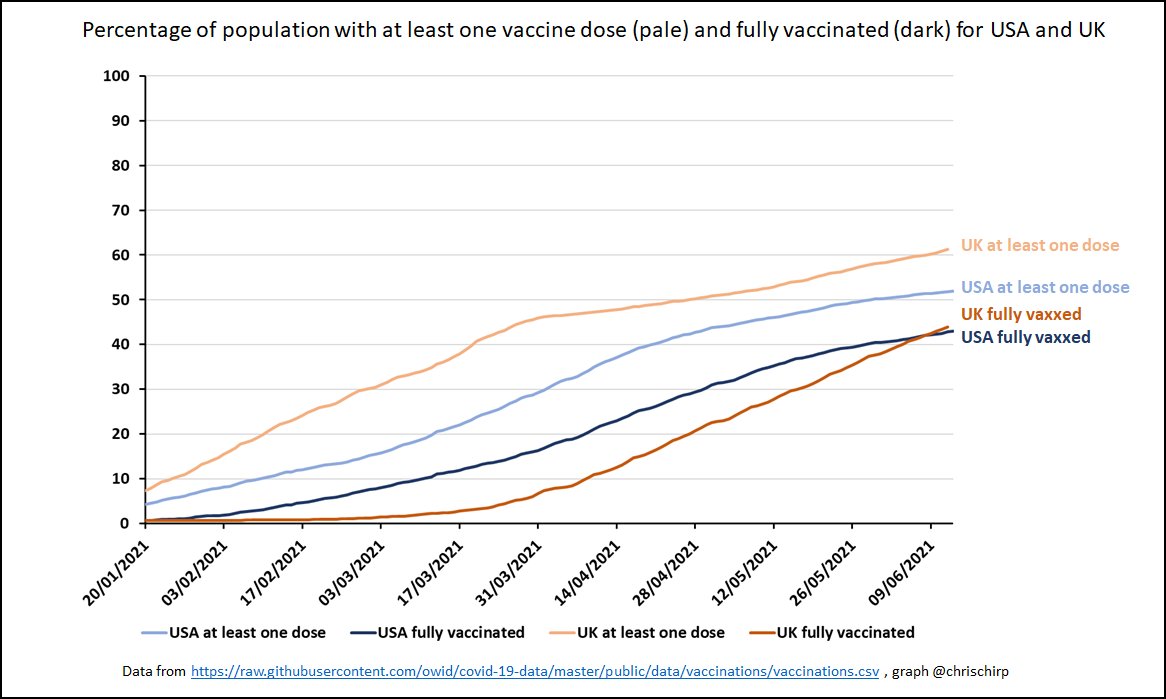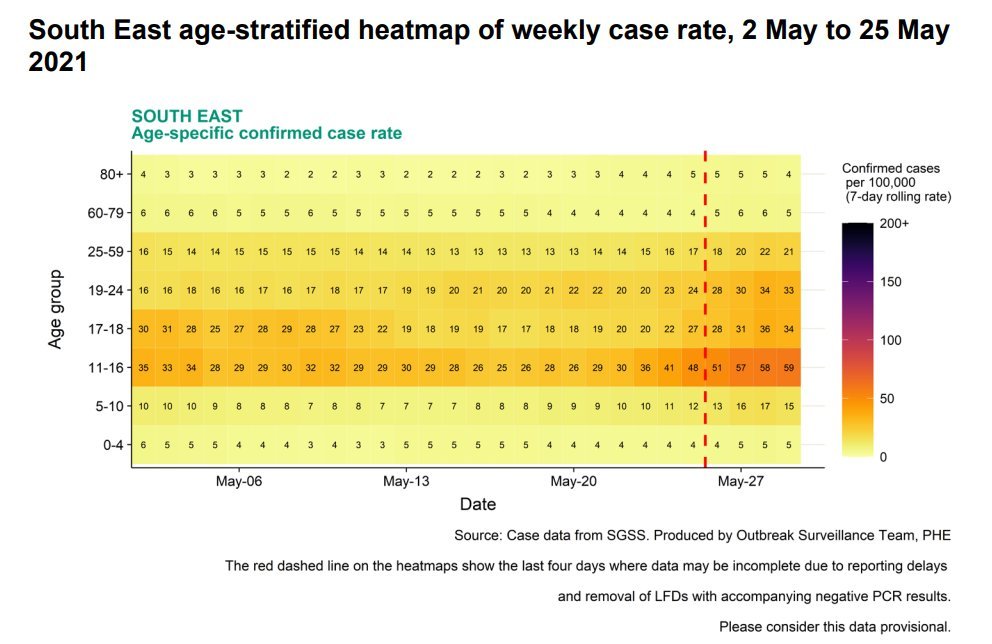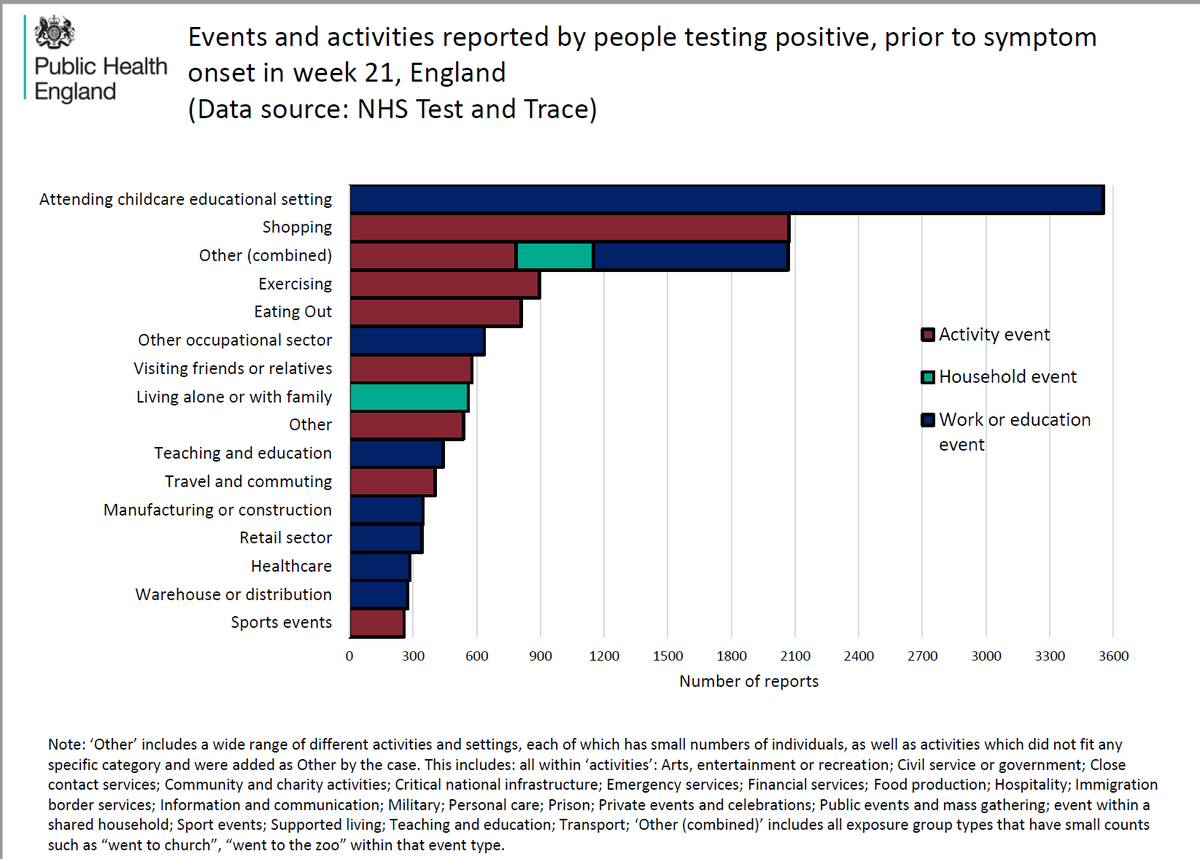
THREAD on cases in UK:
Since Delta became dominant in the UK and the opening of indoor spaces in England and the other home nations in May, cases have rapidly increased. 1/14
Since Delta became dominant in the UK and the opening of indoor spaces in England and the other home nations in May, cases have rapidly increased. 1/14

Cases & positivity rates (showing that it's not just more testing) are going up in all nations except N Ireland (where Delta is not yet dominant).
See same picture in ONS infection survey released today.
ons.gov.uk/peoplepopulati… 2/14

See same picture in ONS infection survey released today.
ons.gov.uk/peoplepopulati… 2/14


Still driven by regional hotspots in Scotland and England.
In England the NW remains a hotspot, but cases now also rapidly rising in NE, Yorks & Humber & Cornwall.
But most local authorities in Wales, Scot & Eng are going up. 3/14
In England the NW remains a hotspot, but cases now also rapidly rising in NE, Yorks & Humber & Cornwall.
But most local authorities in Wales, Scot & Eng are going up. 3/14

Digging into English cases, it's mainly in younger people where vaccination rates are (obviously) lowest.
Since step 3 of roadmap, rates in young adults have overtaken school age children, but cases in school children starting to increase rapidly again since half term. 4/14
Since step 3 of roadmap, rates in young adults have overtaken school age children, but cases in school children starting to increase rapidly again since half term. 4/14

Vaccination is certainly working to keep cases down in older age groups, although cases are rising in all age groups. 5/14
The number of school children missing school due to covid is rocketing up since half term... with English schools still a few weeks away from end of the term, expect this to worsen in short term.
See also this detailed thread from @Kit_Yates_Maths

See also this detailed thread from @Kit_Yates_Maths
https://twitter.com/kit_yates_maths/status/1408382080610865157?s=216/14

Looking at cases by deprivation we can see that the more deprived areas are disproportionately representing in covid hotspots compared to least deprived areas. Again. 7/14 

Vaccination programme continuing well, although slowing down of late.
Still 50% of population only partially protected or unprotected - including all children.
We should celebrate our vaccine roll out but not act as though it's finished yet. It hasn't. 8/14
Still 50% of population only partially protected or unprotected - including all children.
We should celebrate our vaccine roll out but not act as though it's finished yet. It hasn't. 8/14

The Imperial React study released detailed data on over 76,000 adults in England who had Covid between Sept 2020 and Feb 2021.
Over 37% had at least 1 symptom persisting for at least 12 weeks...
spiral.imperial.ac.uk/bitstream/1004… 9/14
Over 37% had at least 1 symptom persisting for at least 12 weeks...
spiral.imperial.ac.uk/bitstream/1004… 9/14
And in particular, older people more likely to have long covid than younger people (althougb still 30% of 18-24 yr olds affected).
Women more likely than men and more deprived more likely than less deprived to have long covid. 10/14
Women more likely than men and more deprived more likely than less deprived to have long covid. 10/14

So we're now having rising cases in young people, more in deprived communities, more kids off education (disadvantaging them and, disproportionately, women). 11/14
"Living with" high infections disrupts lives, disrupts education, leaves very many with long covid, and provides more chances for further mutations to arise.
Rising infections over next month could easily lead to tens of thousands of more people living with long covid. 12/14
Rising infections over next month could easily lead to tens of thousands of more people living with long covid. 12/14
And, given demographic of cases, will result in yet more burden on the young, those in more deprived areas and women. 13/14
We should be doing all we can to reduce cases.
This needn't be restrictions - better contact tracing, support for isolation (see
We aren't doing any of it. Why not? 14/14
This needn't be restrictions - better contact tracing, support for isolation (see
https://twitter.com/ScienceShared/status/1407061502683750402?s=20for dive into issues), investing in ventilation in workplaces & schools...
We aren't doing any of it. Why not? 14/14
PS thanks as always to Bob Hawkins for his help in collating the data and charts
• • •
Missing some Tweet in this thread? You can try to
force a refresh


